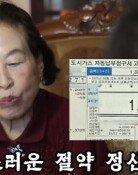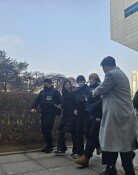[Editorial] The U.S. Should be Honest on Info over the Norths UF6 Exporting
[Editorial] The U.S. Should be Honest on Info over the Norths UF6 Exporting
Posted March. 21, 2005 22:41,
Information over North Koreas UF6 exporting delivered by the U.S. is under attack. The Washington Post has released a controversial report stating that the U.S. government provided false information about suspicions regarding North Koreas exportation of uranium hexafluoride (UF6) to Libya. The U.S. government attempted to increase pressure on North Korea by providing false information that North Korea sold UF6 to Libya to South Korea, Japan, and China, the report said. The Post also added that it is Pakistan, not North Korea, that exported UF6 to Libya.
If it is true, it is not a matter that we can overlook. Our government received the information from Michael J. Green, appointed director in Asian Region Department of the National Security Council (NSC) at the White House. A week later, North Korea announced its willingness to pull back from the six-party talks. If the Post report is true, six-party talks went awry this time because of false information delivered by a man from the White House.
If the information provided by the U.S. a country which has cutting-edge equipment and an information network advanced enough to trace the Norths nuclear facilities and gauge its capacity and intention - is false, regardless its intention, this can shake the foundation of six-party talks itself. Some from the U.S. government point out that Given the fact that Pakistan was a close partner in the U.S. war against terror, the U.S. seems to sweep the issue under the carpet.
Of course, there is strong suspicion that North Korea has exported nuclear materials to other countries. Some argue that UF6 might have flowed into Libya from North Korea via Pakistan. The U.S. government retains samples of uranium produced in all countries except North Korea, and traces the source of nuclear materials by comparing these samples. The U.S. might have assumed that UF6 came from North Korea because the UF6 in question may not have matched any samples the U.S. had.
The U.S. should truthfully relate information to countries involved in this issue, including South Korea. If the six-party talks are jeopardized further, whether or not North Korea contributed to the proliferation of nuclear materials would determine the level of sanctions imposed against the North. In addition, without disclosing the truth in this case, we can hardly expect international cooperation for the peaceful settlement of North Koreas nuclear problems.





![“잠만 자면 입이 바싹바싹”…잠들기 전에 이것 체크해야 [알쓸톡]](https://dimg.donga.com/c/138/175/90/1/wps/NEWS/IMAGE/2026/02/23/133404747.3.jpg)

